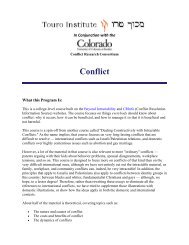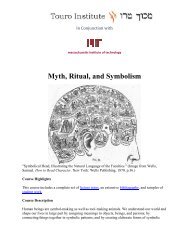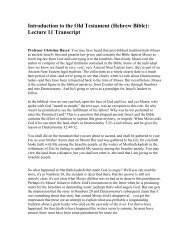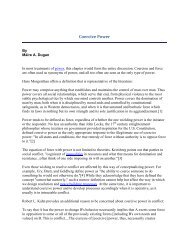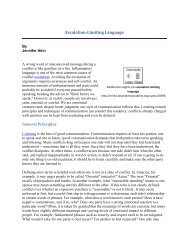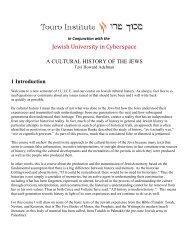In Conjunction with Cultural Anthropology - Touro Institute
In Conjunction with Cultural Anthropology - Touro Institute
In Conjunction with Cultural Anthropology - Touro Institute
You also want an ePaper? Increase the reach of your titles
YUMPU automatically turns print PDFs into web optimized ePapers that Google loves.
s. the trend in which women comprise a major and growing proportion of the world's<br />
poor today<br />
t. system by which people obtain or produce, distribute, and consume material goods<br />
and services<br />
u. non-farm manual laborers<br />
v. goods produced by each family for its own consumption<br />
w. service-providing occupations such as clerical, sales, managerial, and administrative<br />
jobs<br />
x. standard medium of exchange that has a mutually agreed-upon value<br />
y. the right to use property and the right to deny use rights to others as long as one owns<br />
the property<br />
z. contribution of commodities by all members of a group to a common pool from which<br />
they will be distributed to those who will use them<br />
True/False - Chapter 12: The Economic System<br />
True<br />
False<br />
1. Buying and selling is a component of all economic systems.<br />
2. Cultures may define intangibles as commodities.<br />
3. <strong>In</strong> most societies, the contributions of children add to the productive abilities<br />
of their families.<br />
4. Reciprocity is found in all societies.<br />
5. Big men are the same as chiefs.<br />
6. Specialization by group is more common in food-producing societies than<br />
among foragers.<br />
7. Markets are especially developed in sedentary societies <strong>with</strong> large<br />
populations.<br />
8. A subsistence economy is one in which people regularly consume only a<br />
small fraction of what they produce.<br />
9. Horticulturists typically may not be able to sell the land they control <strong>with</strong>out<br />
permission from their kinship group.<br />
10. <strong>In</strong> most societies, the herding of small animals is typically the work of men.<br />
Short Essay Questions - Chapter 12: The Economic System<br />
1.Illustrate the role of culture in determining what is considered to be a commodity and in<br />
determining the value that a commodity has.<br />
2. Why must the phrase "profit motive" be understood as meaning much more than simply the<br />
desire to maximize monetary gain in transactions if it is to be considered a valid principle? What<br />
motives do people have besides economic profit when they make exchanges <strong>with</strong> each other?





